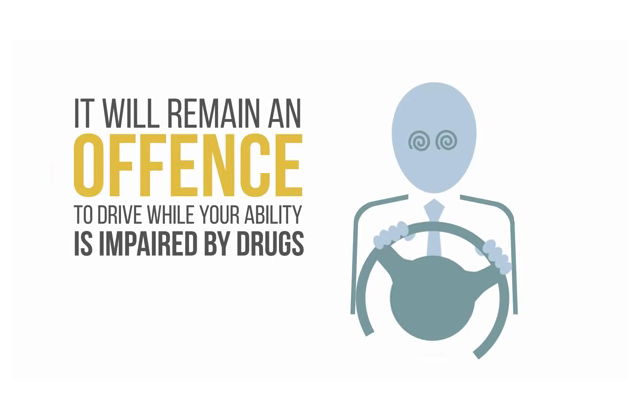This in from the police, in their own words.Ed
Roads Policing Unit officers will be trained to use a piece of equipment brand new to force: the DrugWipe 3S. The new kit allows officers to take a specimen of saliva at the roadside or police station, and perform a preliminary test to detect a number of illegal drugs in the system.
This adds an additional tool in officers’ armoury to detect offenders who put their own lives and the lives of other people at risk by driving whilst under the influence of drugs.
New rules start today
On Monday (March 2), a new road traffic offence will come into being, that of driving, attempting to drive or being in charge of a motor vehicle with the concentration of a specified controlled drug being above a specified limit. This is contrary to Section 5A of the RTA 1988.
This law will mean it will be an offence to be over the limit for each specified drug whilst driving, as it is with drink driving. The new offence will work alongside the existing offence of driving whilst unfit through drink or drugs.
Increased powers for officers
To assist police in the detection of those who decide to drive with illegal drugs in their body, a new law gives officers the power to conduct a preliminary drug test from a specimen of sweat or saliva. This power is referred to as Section 6C of the RTA 1988.
Drugs covered by the new legislation include cannabis, cocaine, ecstasy and ketamine. The limits for illegal drugs will be close to zero and other drugs will subject to a risk-based limit.
Drug drivers can be arrested and charged
Sergeant Rob Heard, who leads on road safety issues for Hampshire Constabulary, said:
“It is illegal to drive if you are unfit to drive by legal or illegal drugs. If the police stop you and think you’re on drugs they can do a Field Impairment Test. This is a series of tests that assesses a driver’s ability to drive safely.
“If they think you’re unfit to drive because of taking drugs, you’ll be arrested and will have a blood test at a police station. If the test shows that you’ve taken drugs you could be charged with an offence.
“You don’t have to be on illegal drugs to be unfit to drive – many prescription or over-the-counter medicines may also impair your ability to drive safely. If you’re taking medicines, talk to your doctor, pharmacist or healthcare professional before driving and read any instruction leaflets contained with medicines.
“This new law does not replace the offence of ‘Driving whilst Unfit through drink or drugs’, contrary to Section 4 of the Road Traffic Act, but compliments it and gives assistance in bringing to justice those who decide to use drugs and drive on our roads.
“All those suspected of driving whilst unfit, or over the prescribed drug limit will still need to have a blood sample taken for analysis to confirm the drug being present.
“Taking drugs can seriously impair driving skills. Driving whilst under the influence of drugs is extremely dangerous and can affect driving in numerous ways.
“Drug drivers can suffer from slower reaction times, erratic and aggressive behaviour, an inability to concentrate properly, nausea, hallucinations, panic attacks, paranoia, tremors, dizziness and fatigue. In such a condition, it is a bad idea to be behind the wheel of a car, for the driver and their passengers.”
Could result in a criminal record and fine
This new law will help make it very difficult for those who decide to drive whilst unfit or over a specified drug limit to avoid detection and prosecution.
A drug drive conviction will have a serious effect on a driver’s life, with penalties including a criminal record, a minimum 12 month driving ban and a fine of up to £5,000.
Sergeant Heard warns,
“It could also cost you your job.
“Drugs impair your driving and driving under the influence of drugs is unacceptable. The convicton will remain on your driving licence for 11 years, and may affect your ability to hire vehicles. Get caught and you will have to suffer the shame of your family, friends and colleagues knowing you’re a drug driver.”





